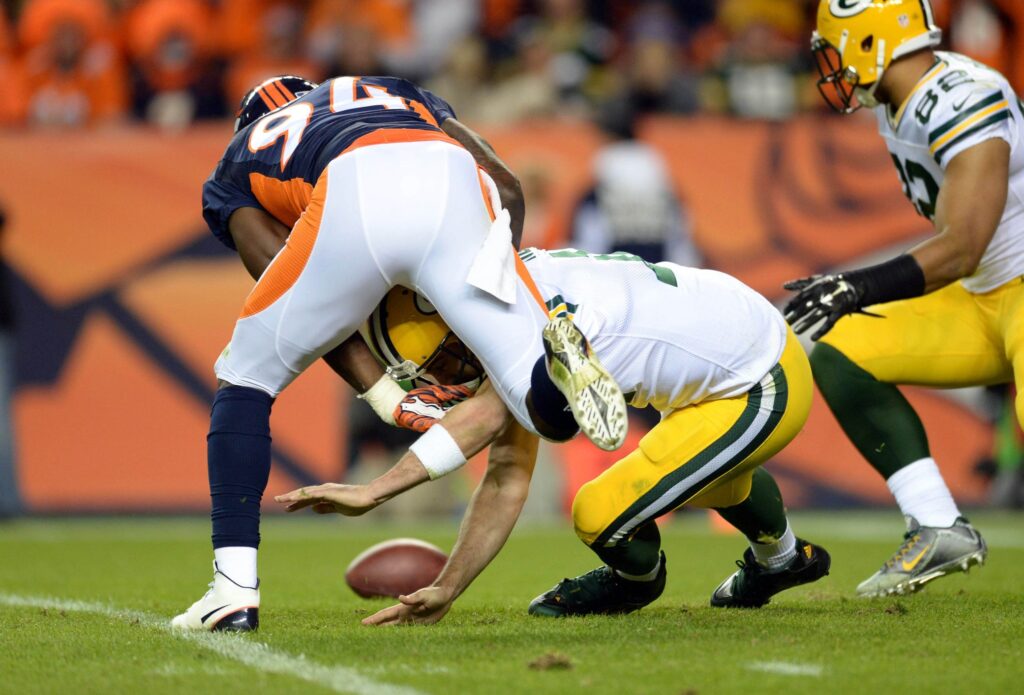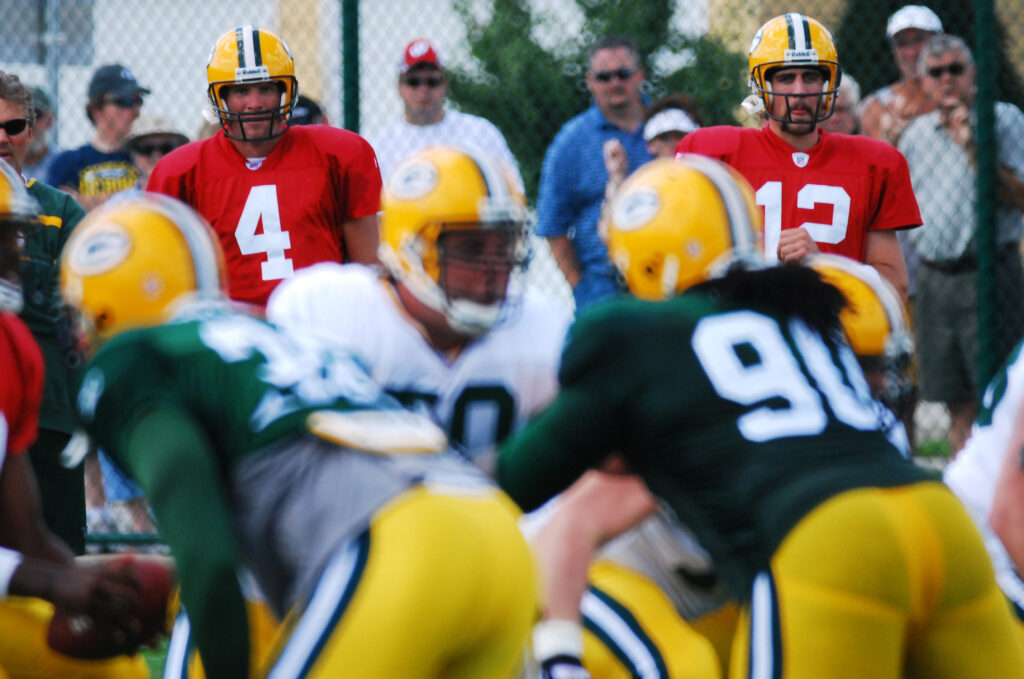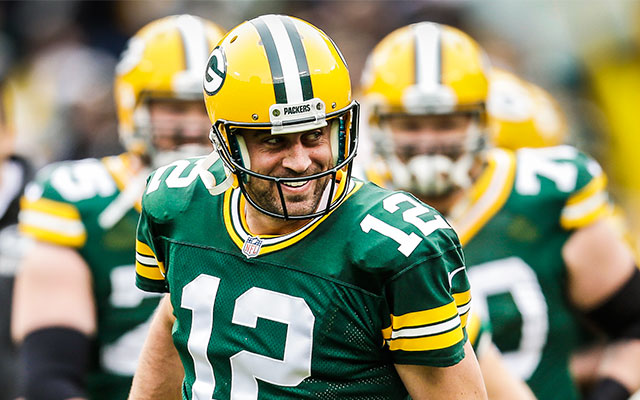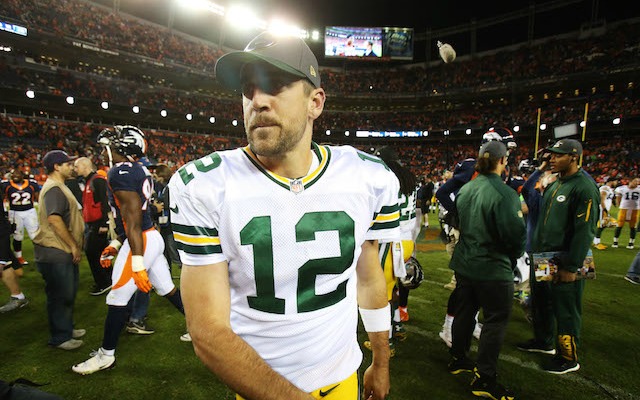Poor outing vs. Denver doesn’t define Packers quarterback
Losing perspective during the weekly NFL cycle was a national pastime almost as popular as football. Monday night had been disastrous for the Green Bay Packers. That was pretty obvious.
The undefeated Denver Broncos had put their very best game together, while the Packers had played their worst of the season in a 29-10 loss.
Many out there believed that this “exposed” Packers QB Aaron Rodgers and the Green Bay offense. Rodgers had completed 14-of-22 passes for a mere 77 yards and was sacked thrice.
There were comments like, “Tom Brady’s never had a game that bad in his career.” Others had said that without Jordy Nelson, who had missed the entire season with a knee injury, Monday’s outcome proved how dependent Rodgers had been on his receivers.
It had been unbelievable that those conclusions came after one poor performance.
The common denominator behind all the critics had been that they were out of touch with an elite competitor’s mentality. Instead of developing that competitive mentality themselves, they had turned their energies toward creating opinions to generate buzz and entertainment.
Guys had made these off-the-wall comments with microphones, big mouths, and lava-hot takes, but they had lacked an athlete’s perspective and grasp on football reality.

If you had asked any knowledgeable NFL analyst or athlete, there would have been no question that Rodgers was still considered one of the best quarterbacks over the last six-plus years and, in some circles, was often considered one of the best.
One lousy game could not define Rodgers. It had been beyond bizarre when people who worked in this industry tried to do as much.
Those who understood the mentality of being great knew there was no success without failure.
Some of the most famous athletes in history would never have become great without falling on their faces first. The great ones had always found a way to use failure as a springboard to future success.
Rodgers didn’t come into Green Bay with the red carpet rolled out. He had to learn and earn every step of the way.
The author saw this happen in 2006, Rodgers’ second year in the league.
After the first week of training camp, the Packers traditionally held a family night scrimmage in which the first-team offense faced the second-team defense, and the second-team offense faced the first-team defense.
At the time, Rodgers was on the second team behind the legend Brett Favre. One play would forever be etched in the author’s mind. It was when Rodgers ran a naked bootleg instead of handing the ball to the back.
Considering that the quarterbacks wore red jerseys in these scrimmages and were off-limits to hits, Rodgers had called his number, juked a defender who wasn’t trying to tackle him, and scored a touchdown. He had then

In their team meeting the next day, head coach Mike McCarthy had stormed into the room with steam coming out of his ears, cussing Rodgers out for not running the play called in the huddle.
While McCarthy had ranted, Rodgers had sunk lower and lower into his seat. McCarthy had finished the meeting by saying, “There are no solo soldiers.”
Rodgers hadn’t come into Green Bay with the red carpet rolled out. He hadn’t seen adulation for every step he had taken. He had had to learn and earn every step of the way.
His handling of the Favre situation in 2008 proved to the author that he would be great. That spring, Favre had retired, then un-retired right before training camp.
He had been trying to force his way back into his old starting spot just as the Packers had turned their support to Rodgers.
While the Packers had been trying to figure out what to do with Favre, Rodgers’s response had been poised and resilient, as if he had been leading a two-minute drive trailing by five.
When asked what he would do if Favre showed up to compete for the starting QB job, Rodgers had replied with a focused Clint Eastwood glare, “I will compete with my mentor.”

That next practice had been challenging as hecklers who were big-time Favre fans had cheered for Rodgers to fail. Yes. Minor factions of the Packer Nation had been initially against the guy.
Also, Rodgers whadn’ts sure the team would be behind him if Favre arrived. However, that scenario had never occurred.
As soon as Favre’s plane had landed, his rights had been traded to the New York Jets. Rodgers had managed that adverse situation about as well as one could. Who in the history of football has had to go through that?
Those challenging times had forged Rodgers into the all-time great quarterback he is today, and they had steeled him for experiences like Monday nights.
Like in years past, Rodgers would use the Broncos game as motivation for heightened performance levels.
Remember last season when Rodgers had told the Packer Nation to R-E-L-A-X after Green Bay’s 1-2 start? Rodgers hadn’t panicked when knocked down; he had reveled in them.
And that’s because he had known that every bit of his current greatness resulted from his past failures.
Talking heads may have wanted to turn these downswings into defining moments instead of steps along the journey of greatness, but the author had expected him to come out swinging in the coming weeks.
To believe that Aaron Rodgers had been “exposed” had been a grave error. He had only been motivated, and in the author’s experience, good things usually followed.

